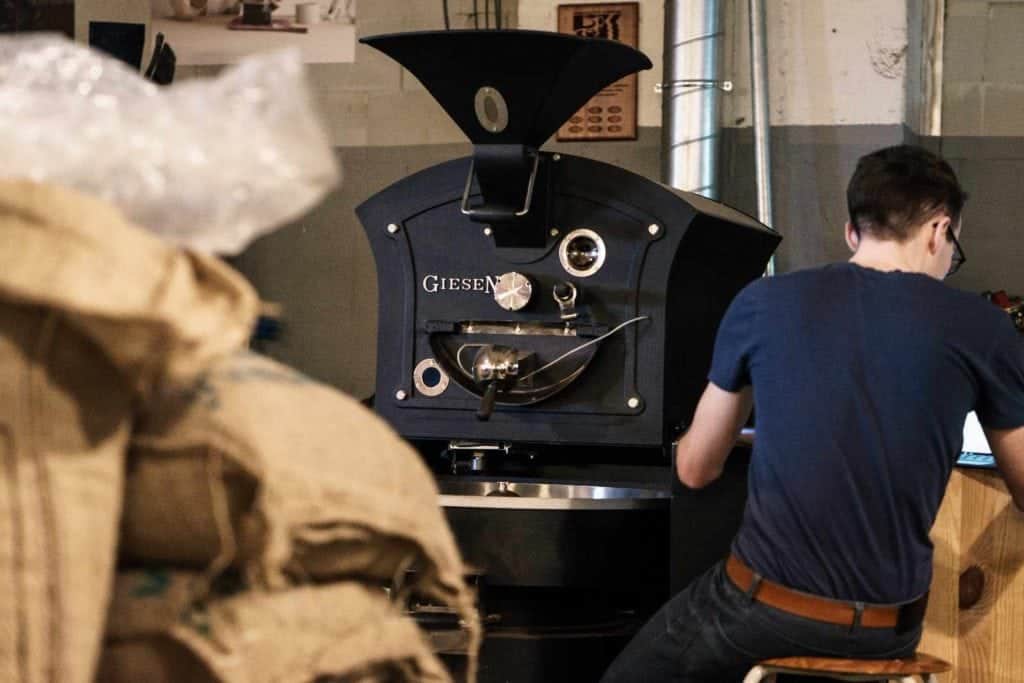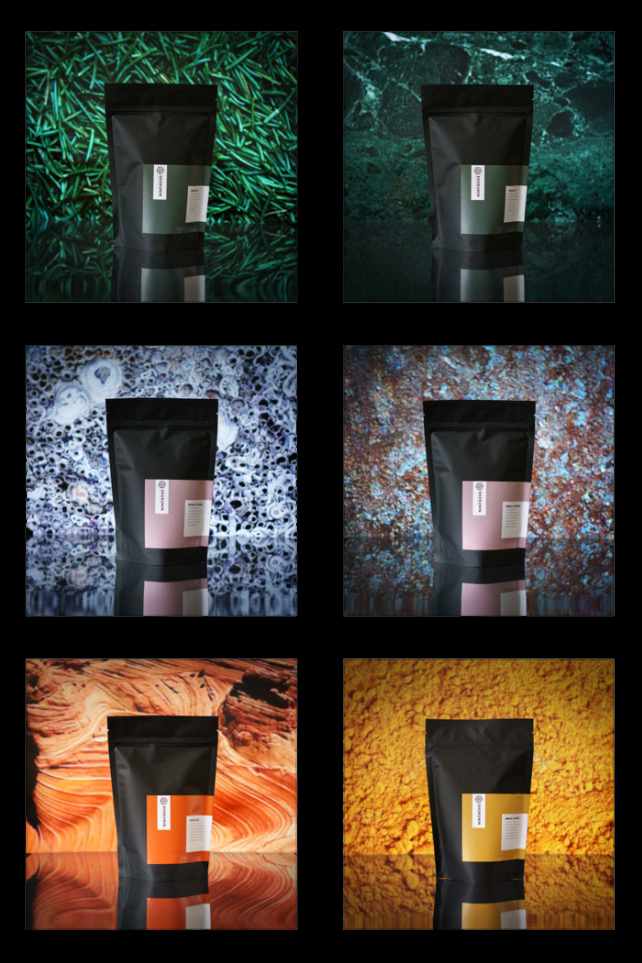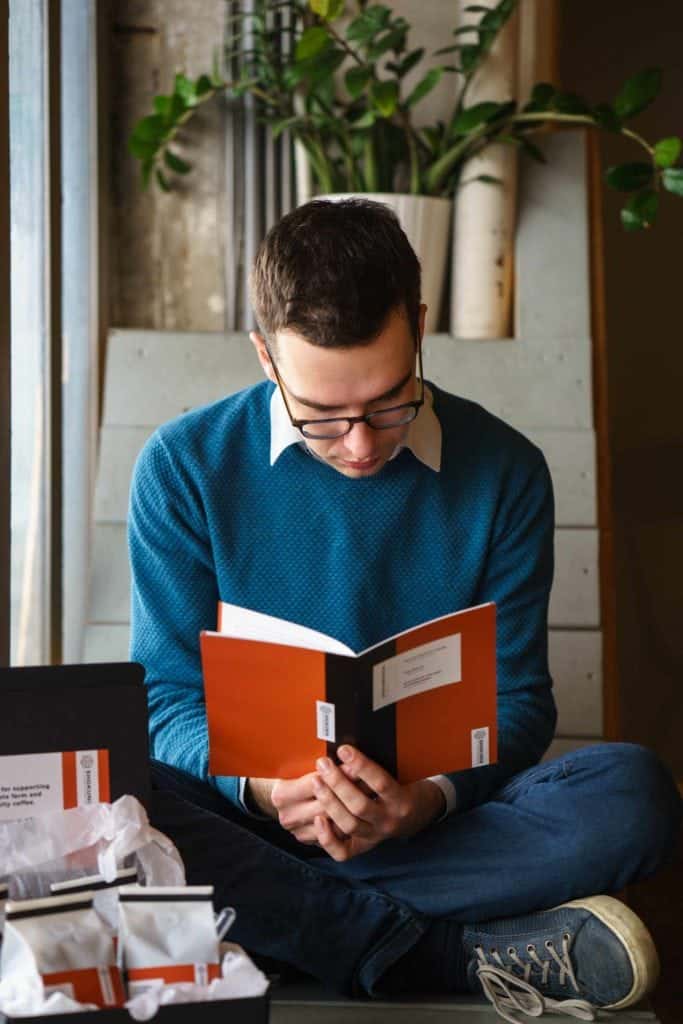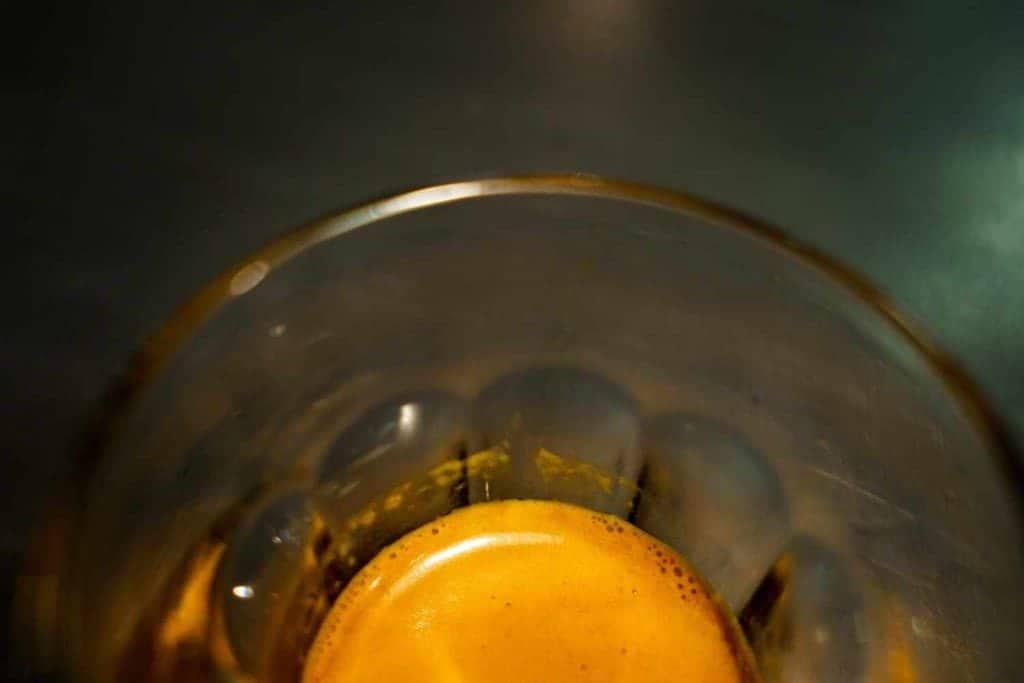Today, there is an enormous expansion of regional speciality coffee roasters who share the important values at the core of our industry– quality and transparency. We have met and co-operated with many of them while travelling all around Europe in the last few years, and now, with a quick glance into their work and life, we would like to demonstrate their individuality and uniqueness in this series.
Coffee roasters are an inherent part of the coffee chain. They take on the responsibility of connecting coffee producers with consumers, continuing the work of dedication and respect to the bean.
Read on to discover Shokunin Coffee Collective, a speciality coffee micro-roaster based in Rotterdam, the Netherlands.

Shokunin Coffee Collective is a roastery founded by the 24-year-old Jelle van Rossum from Rotterdam. He launched his roasting project about four months ago, when it was more of a label for his special projects and collaborations, and only later did it grow into an actual coffee brand. While the roastery is only four months old, Jelle has got four years of experience in the coffee industry. Jelle got interested in the coffee world straight after his hotel management studies, while he helped his parents set up a cafe in the East of the Netherlands.
A few questions for Jelle van Rossum
What is the story behind the roastery’s name?
Shokunin is a Japanese term that’s difficult to translate; in a way, it means someone who is a master of their profession and who lives for their passion and does nothing but striving for perfection. By doing this, the entire community around them benefits.
What was your journey to coffee and to roasting? What does it mean to be a coffee roaster?
My sister started in coffee as a part-time job and then got me into it by inviting me to a cupping. After that, I started brewing different types of coffee at home and visiting coffee shops. From then on, things kept on escalating and after my studies, I became a professional barista. Since by then I had already met most people from the speciality industry in Holland, one day I got a job offer from someone in Rotterdam who wanted to build a roastery and who needed someone to do the actual roasting. That’s where I taught myself everything about roasting and extraction.
I see a coffee roaster as being the central link in the coffee chain. They are involved with the origin, but they also communicate everything about the origin, flavour, recipes, etc with the baristas and consumers.
What is the most important skill for a coffee roaster to have and where have you gained it?
Focus and attention to detail. In order to roast precisely according to profiles and to create the exact flavour profile, you need to be accurate, critical and self-conscious.
What roasting machine do you use and how big is it?
I use a Giesen W6A, which has a maximum capacity of 6kg green coffee.
What do you think is the major misconception about coffee roasting?
That every roast is a flavour experience. The cupping table is where the flavour profiling happens, production work can actually be quite monotonous and uninspiring.
Are there any rules you would not cross in roasting and sourcing of coffees?
Rules not so much, but I always show respect for producers and people’s choices and flavour preferences.
Looking back, what one thing would you wish to know or do when you were starting to roast coffee?
Back then, I didn’t know as much about actual flavour profiling as I do now, just about technical roasting. However, this is a constant journey, so I can’t really expect anyone to know this from the start.
What do you consider some of the best experiences you have had in coffee so far?
It’s always a pleasure to get positive reactions from professionals, but the very best experience was my origin trip to Colombia where I actually got to put my vision on direct trade into practice. This has become the cornerstone of my brand.
Where do you see your roasting business in five years?
I expect a slow but very organic growth, and in five years time, I want to be a recognized brand that works with exclusive lots that I have selected myself and that directly contribute to the farmers’ well-being.
What is your main criteria while selecting beans?
Mostly the story and vision of the farmer and being able to make long-term plans. Flavour-wise, I always want something unique in the coffee, but also balance and sweetness.
Do you have an unusual habit or a hobby that you love?
I guess my Rubik’s Cube is a thing; at present, my record for solving it one-handedly is 14 seconds.


Quick Fire Questions
Your favourite coffee origin?
Colombia! And DR Congo is close second.
Have you ever had a fire in the roastery or any other incident?
Never, and not planning to. 🙂
Omni or filter/espresso roast? Why?
Filter/espresso, because it allows for more focus and flavour profiling. I firmly believe in consumer-oriented roasting, meaning I change my roast profile according to the brew ratio (and therewith TDS) that the barista wants to use in their shop, just to give an example.
Who are you mentor/s? What inspires you?
From a flavour perspective, my biggest inspiration is Tim Wendelboe because of his coffee’s clarity, sweetness and mouthfeel; this is something I also incorporated in my roasting style. From a visionary perspective, Lennart Clerkx (This Side Up Coffee) inspires me about direct trade and how to go about getting involved in origin.
Do you aim to satisfy a taste preference of your customers or yours?
Like I said, I have a consumer-oriented roasting style. I select my coffees based on what I want, but I develop them according to what I think people want to taste.


